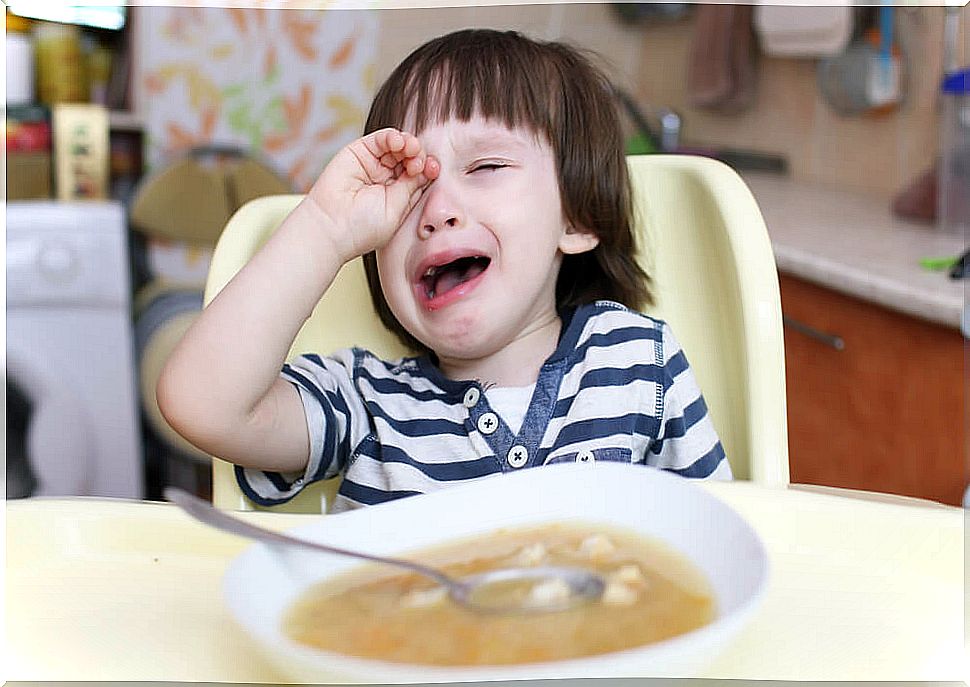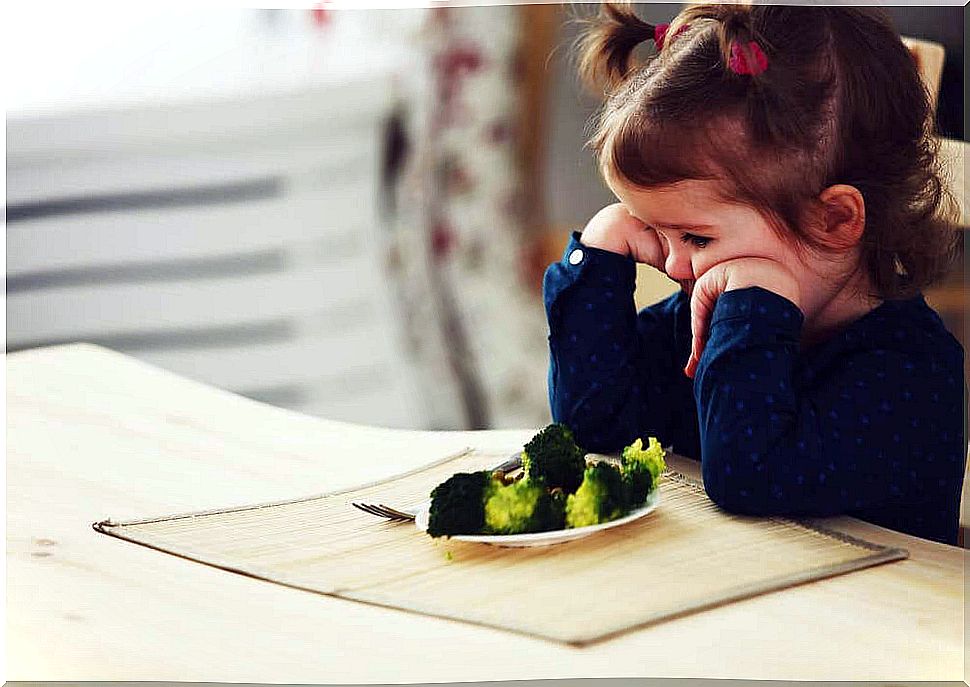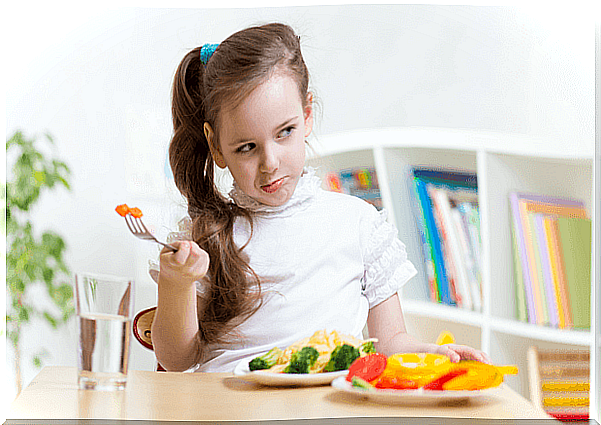How To Handle A Food Neophobia Correctly
Food neophobia is more common than it seems. One way to avoid it is for parents to eat everything so that their children follow suit. We give you more tips to solve this problem.

Food neophobia is the absolute refusal by children to try new foods. “I don’t like that” reactions , especially with healthy products, can make eating a real challenge.
It is completely normal for children to reject some types of fruits and vegetables. For example, they may not like pear or broccoli because of their taste. However, what should not happen is that they do not want to try any other type of food that is within this group.
If a child rejects any fruit, he may end up suffering from a vitamin deficiency. The same is true if you flatly refuse to taste any type of vegetable.
How to handle food neophobia with the little ones
We are going to offer you a series of tips to deal with this disorder that endangers the dietary balance, which can increase the risk of developing pathologies in the medium and long term.
Neophobia is one of the most common dietary problems in children. The current scientific literature ensures that this condition is capable of determining the future diet and thus its quality of life.
We adults are his great example
Do we eat the fruits and vegetables that we want the little ones to eat? Food neophobia implies rejecting what has not even been tried. Therefore, children do not know whether or not they like that food.
This usually happens if the parents don’t eat everything. What’s more, children may even be given foods that parents cannot tolerate eating. In these cases, children will not want to consume them either.

As parents, we have to set an example. Doesn’t our son want to try something new? So let’s try a different food for ourselves, thus making it understood that until it is tasted, one cannot determine whether or not one likes its taste.
Also, another good way to combat food neophobia is to cook with children. In this way, in addition to reinforcing our bond with them, they will come into contact with food in a very different way than they were used to. Cooking can increase your curiosity.
Introduce new foods one at a time
A good advice to avoid the absolute rejection of the child to new foods is to introduce them one by one. For example, if you never ate spinach but you did eat rice, let’s combine that rice by adding spinach as a new item.
If he had never eaten spinach and we suddenly put it on his plate, the child will refuse to eat. You will feel that there are too many new items and you will refuse to eat what is on the plate.
This technique is especially useful for introducing strong-flavored vegetables into your diet. An example of them would be broccoli, whose consumption is associated with a lower risk of developing some types of cancer, according to experts. This power is mainly due to the presence of sulforaphanes in its composition.
Prizes will never be offered
Saying “if you eat it I’ll give you chocolate” or “if you eat it, let’s go to the park this afternoon” is not a good idea. The child will take the act of eating something new as a real sacrifice and will only do it because there is a reward waiting for him. In the event that there is not, he will not eat anything.
Therefore, in the event that the child does not want to eat, they should not be blackmailed, punished or forced. What you should do is leave that food in view for the child to see and, little by little, the curiosity to try it pique. Children are very curious.

It will also help parents to eat and enjoy the food. If they make a meal in which they include that food and in the child’s one, the moment may come when the child asks: “Why don’t you put it on me?”
Many times, when you do not force a child to eat something he does not want, in the end it is he who ends up asking you. This is excellent advice if your child suffers from food neophobia.
“That is not going to eat” is counterproductive
If when we are preparing food for the child, one of the parents blurts out “that is not going to eat it”, it is most likely that they will. The child will already imagine how bad that food tastes and will not even want to taste it. Therefore, it is necessary that we avoid this type of comments and that the ones we say out loud are positive. This will help the child to overcome his food neophobia.
Remember that the more varied the child’s diet, the better his health in the medium and long term. It is essential, according to research published in the International Journal of Epidemiology , that vegetables are regularly included in the diet.
The food neofobia is very common in children. However, we can solve it effectively by putting the above recommendations into practice. Has your child ever had food neophobia? How have you solved the problem?









